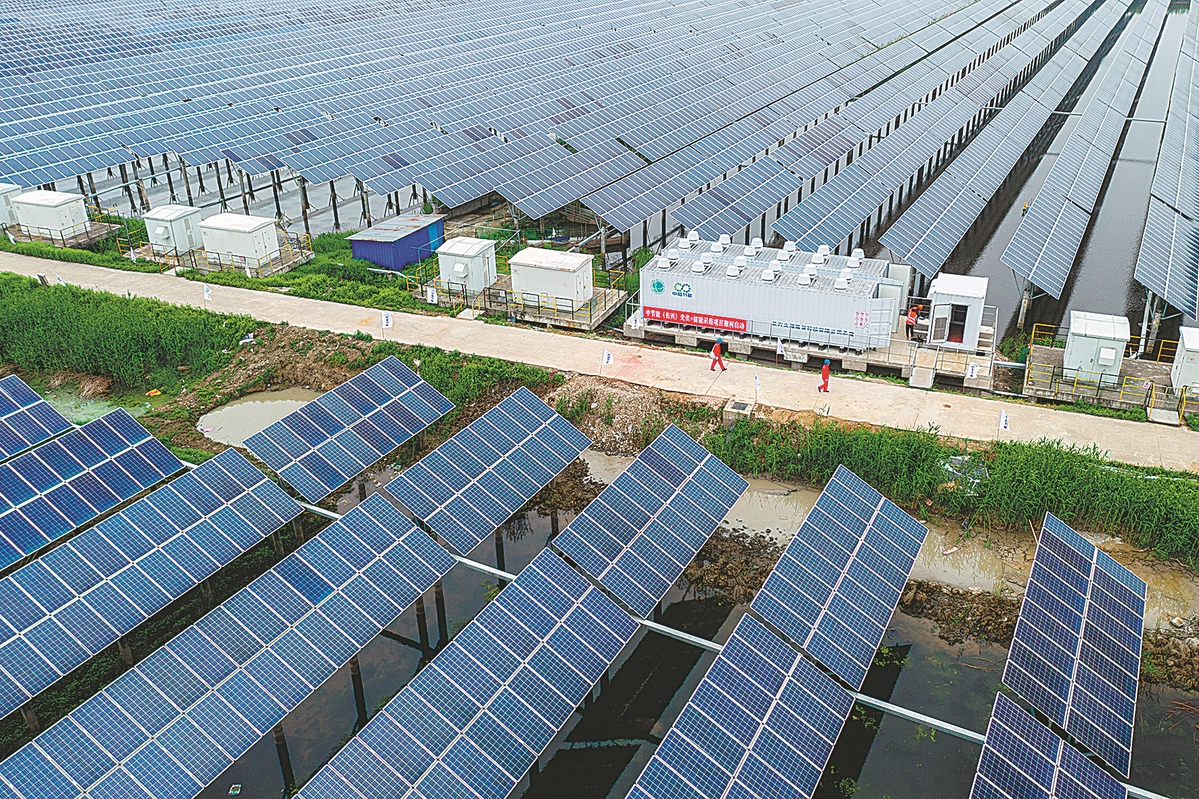Monitoring companies slammed for enabling false carbon emission reports


China's top environmental watchdog has lashed out at four service providers for helping carbon emitters falsify emission data, the reliability of which has been dubbed a "lifeline" for the successful operation of the country's carbon trading market.
The market, launched in July, currently only involves emitters from the power generation sector.
The emission data is key to the market's operation as it will determine whether emitters have to buy carbon emission allowances. The program imposes carbon emission limits for every unit of electricity a power plant generates. After each cycle of trading, emitters will have to purchase allowances if the emission intensity of their plants exceeds the bench mark.
The market is an important policy instrument in achieving the country's goal of peaking carbon dioxide emissions before 2030 and realizing carbon neutrality before 2060.
To ensure data integrity, the Ministry of Ecology and Environment dispatched 31 teams from October to December to check emitters' carbon emission reports and provide support to improve the quality of the documents. The companies were found to have falsified testing reports, provided fake samples and fabricated conclusions, the ministry said.
Zhongtan Nengtou Science and Technology (Beijing) falsified and even fabricated carbon content information for some emitters. Knowing that some emitters didn't keep samples in 2019 and 2020, it suggested they provide fake samples for testing.
Though some emitters provided coal samples to the company for testing in a "concentrated manner", the company issued monthly testing reports for them, the ministry said. It tampered with the dates on which it received the samples, conducted the testing and concluded the testing results.
Similar violations were also found at Dongmei Test and Analytics Institute in Liaoning province, which provided false information and issued monthly testing reports even though emitters hadn't provided samples every month.
Another major problem the ministry found was that companies commissioned to verify carbon emission data did the work as a mere formality.
When SinoCarbon Innovation & Investment, registered in Beijing, compiled data verification reports, employees who signed the documents had not been involved in the verification work, according to the ministry.
The company also turned a blind eye to the falsification of testing reports and obvious calculation mistakes, it said.
When conducting field verification, employees of Qingdao Xinuo New Energy in Shandong province only "walked around" and "took some photos". They didn't verify the environmental impact assessment report, pollutant discharging permits or other key documents.
Though some emitters didn't have records of coal quality testing, Qingdao Xinuo claimed it had checked the records, the ministry said in a news release.
"The ministry has urged local environmental authorities to conduct further investigations into these technology service providers and other companies involved," it said. "Those who falsify data and conceal and fabricate information will be severely punished."
The ministry did not disclose what punishments the offending companies faced.
In a recent interview, Li Gao, director-general of the ministry's climate change department, vowed a series of measures to ensure data integrity as the ministry strives to promote the construction of the national carbon trading program.
To beef up regular supervision, the ministry will organize local environmental authorities to roll out inspections with randomly selected inspectors. Those officials will also select which companies to visit in a random manner and make inspection results public, he said.
He said that aside from data fraud, misconduct in operating facilities for measuring and testing will also be key targets of inspectors.
- Government agencies announce regulations of online hiring information
- Ministry pledges to continue solid waste disposal crackdown
- Shandong upgrades ancient canal shipping with smart tech and cleaner ships
- Night view of Central Street in Harbin
- Pingtan to pioneer cross-Strait 'common market' during 15th Five-Year Plan period
- Frozen waterfalls bring winter magic to Jinan





































